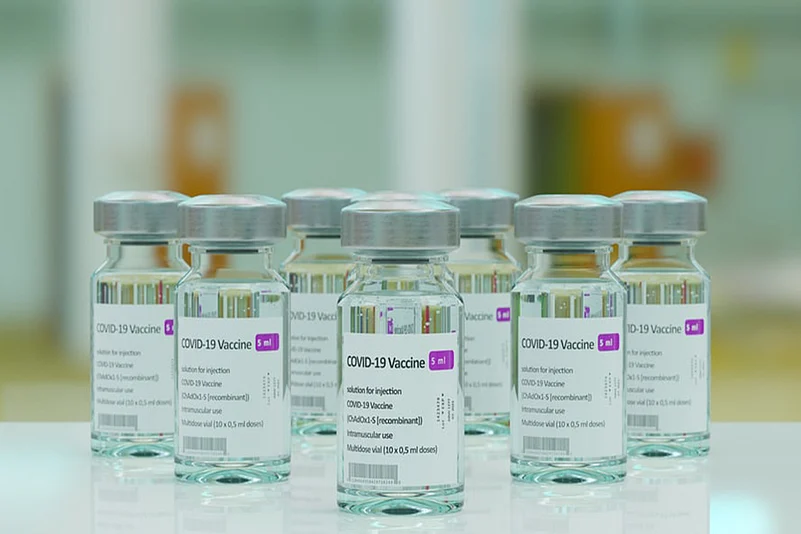There are different ways of producing vaccines. While most conventional vaccines use weakened or inactive form of the virus, a few are produced by using the pathogen’s genetic code. The latter type of vaccines are called mRNA vaccines and they are produced faster when compared to the conventional ones.
The Pfizer and Moderna Covid-19 vaccines fall in the latter category, they are mRNA vaccines. They contain tiny fragments of coronavirus’ genetic material known as “messenger ribonucleic acid”.
While these vaccines are yet to receive emergency use approval in India, many in other countries, where the vaccines are being used in the inoculation drive including in Australia, have raised concerns of the possibility of recipients’ genetic code getting affected.
However, there’s absolutely no scientific evidence to prove this occurs and here’s why the chances of your genetic code getting affected are next to zero.
Remind me, how do mRNA vaccines work?
The technology used in the Pfizer and Moderna vaccines is a way of giving your cells temporary instructions to make the coronavirus spike protein. This protein is found on the surface of SARS-CoV-2, the virus that causes Covid-19. The vaccines teach your immune system to protect you if you ever encounter the virus.
The mRNA in the vaccine is taken up by the cells in your body, ending up in the liquid inside each cell known as the cytoplasm. Our cells naturally make thousands of our own mRNAs all the time (to code for a range of other proteins). So the vaccine mRNA is just another one. Once the vaccine mRNA is in the cytoplasm it’s used to make the SARS-CoV-2 spike protein.
The vaccine mRNA is short-lived and is rapidly broken down after it’s done its job, as happens with all your other mRNA.
Here’s why the mRNA can’t insert into your genetic code
Your genetic code is made up of a different, but related, molecule to the vaccine mRNA, known as DNA, or deoxyribonucleic acid. And mRNA can’t insert itself into your DNA for two reasons.
One, both molecules have a different chemistry. If mRNAs could routinely insert themselves into your DNA at random, this would play havoc with how you produce proteins. It would also scramble your genome, which is passed on to future cells and generations. Life forms that do this would not survive. That’s why life has evolved for this not to happen.
The second reason is vaccine mRNA and DNA are in two different parts of the cell. Our DNA stays in the nucleus. But vaccine mRNA goes straight to the cytoplasm, never entering the nucleus. There are no transporter molecules we know of that carry mRNA into the nucleus.
But aren’t there some exceptions?
There are some extremely rare exceptions. One is where genetic elements, known as retro-transposons, hijack cellular mRNA, convert it into DNA and insert that DNA back into your genetic material.
This has occurred sporadically throughout evolution, producing some ancient copies of mRNAs scattered throughout our genome, to form so-called pseudogenes.
Some retroviruses, such as HIV, also insert their RNA into our DNA, using similar methods to retro-transposons.
However, there is a vanishingly small chance of a naturally occurring retro-transposon becoming active in a cell that has just received a mRNA vaccine. There’s also a vanishingly small chance of being infected with HIV at precisely the same time as receiving the mRNA vaccine.
Even if a retro-transposon were to become active or a virus such as HIV were present, the chances of it finding the COVID vaccine mRNA, among the tens of thousands of natural mRNAs, is extremely unlikely. That’s because vaccine mRNA is degraded within several hours of entering the body.
Even if vaccine mRNA did become a pseudogene, it would not produce the SARS-CoV-2 virus, but just one of the viral products, the harmless spike protein.
How do we actually know this?
We know of no studies looking for vaccine mRNA in the DNA of people who have been vaccinated. There is no scientific basis on which to suspect this insertion has happened.
However, if these studies were to be carried out, they should be relatively straightforward. That’s because we can now sequence DNA in single cells.
But in reality, it will be very hard to ever satisfy a naysayer who is convinced this genome insertion happens; they can always argue scientists need to look deeper, harder, in different people and in different cells. At some point this argument will need to be laid to rest.
So how did this myth come about?
One study reported evidence for coronavirus RNA integrating into the human genome in cells grown in the lab that had been infected with SARS-CoV-2.
However, that paper did not look at the mRNA vaccine, lacked critical controls and has since been discredited.
These types of studies also need to be seen in context of the public’s wariness of genetic technology more broadly. This includes the public’s concerns about genetically modified organisms (GMOs), for instance, over the past 20 years or so.
But GMOs are different to the mRNA technology used to make COVID vaccines. Unlike GMOs, which are produced by inserting DNA into the genome, vaccine mRNA will not be in our genes or passed to the next generation. It’s broken down very quickly.
In reality, mRNA technology has all sorts of applications, beyond vaccines, including biosecurity and sustainable agriculture. So it would be a pity for these efforts to be held back by misinformation.
(With PTI inputs)
















